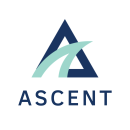In any role, it’s a given that there are fundamental expectations and obligations to fulfill. But with that understanding should also be a sense of ownership or agency to it all — in other words, a small dose of latitude that still fits within the architecture of the job.
Think of it like an artistic endeavor or creative pursuit: There’s an overall vision of where you want to go, but half the fun is a sense of discovery that comes with having the liberty to find your own route to it. And how can talent truly flourish or reveal itself if it’s confined to a prescriptive box of parameters?
To Ken Gass, senior software engineer at Ascent, autonomy doesn’t translate into a blank canvas to act as he so pleases; instead, it means being empowered to make contributions that align with the bigger picture at the Chicago-based regtech company.
“To me, autonomy isn’t being able to say ‘I can do what I want when I want,’” Gass said. “Autonomy means being allowed the space and time to execute my duties to the best of my ability within agreed upon constraints and without onerous micromanagement.”
In today’s remote world, where the visual supervision that physical togetherness provides is removed, the aforementioned “onerous micromanagement” could be a precarious territory into which one can easily wade.
But Gass said that, while working remotely, he’s enjoyed autonomy — mostly due to one essential ingredient: “It’s about trust,” he said. The engineering professional shared why he’s found that in spades at Ascent — and how it has benefitted his growth and work-life balance as a tech professional.

What does autonomy at work mean to you?
Autonomy is an expression of trust between myself and my teammates through our shared understanding of how we agree to work to accomplish business goals.
Ascent is a fully remote work environment, so finding the right balance between autonomy and connection is very important for our team. It’s the practices that we engage in together that give us the freedom to then tackle our work in a flexible way.
As a developer, I am given the option of being as involved in new project planning as I would like to be. From discovery to technical planning to product feedback, the product team involves the people charged with implementing business objectives. Contributing to planning may take us away from writing code for a time, but it gives us a deeper understanding of what we’re trying to accomplish. Once we all agree on the “what,” we are given more leeway to implement the “how,” assuming our solution fits in the time constraints we all agree on.
Finding the right balance between autonomy and connection is very important for our team. It’s the practices that we engage in together that give us the freedom to then tackle our work in a flexible way.”
How have you been able to build a satisfactory level of autonomy at your current employer?
Again, it’s about trust. At Ascent I trust that my mental well-being and professional development really is a priority of management, and that the term ‘work-life balance’ isn’t just a phrase dropped by the recruiting team and ignored in day-to-day operations.
In turn, management and my teammates have to trust that I have a genuine commitment to work hard, to ask for help when I’m blocked and to actively engage in our team’s development through collaboration, mentorship and knowledge sharing. Not every company I’ve worked for has offered the level of autonomy I currently enjoy; I value it, so I strive to continue to uphold my end of the bargain.
All this isn’t to say that everything is perfect. Mistakes are still made, apps still break and despite developer involvement, projects are still occasionally delivered late as implementation details are missed or requirements change. That’s where a continuous cycle of measurement and re-alignment of our processes comes in. We use regular check-ins, team-health-check surveys and after-action reviews alongside standard agile ceremonies and practices to ensure that our culture of collaboration and support is constantly reinforced.
How does your employer and/or manager support you in finding the autonomy you need in your career?
The past few years have been difficult for everyone. A global pandemic has forced workers everywhere to reevaluate their personal and professional priorities and I’m happy to work at a company that values balancing those demands.
While many companies struggled to adapt to the changing demands of a remote workforce, Ascent’s management made it a business priority to build a flexible and supportive remote work environment for all employees. That investment in employee autonomy has fostered a culture where I can feel proud and valued for the work I do, while maintaining a healthy work-life balance.









